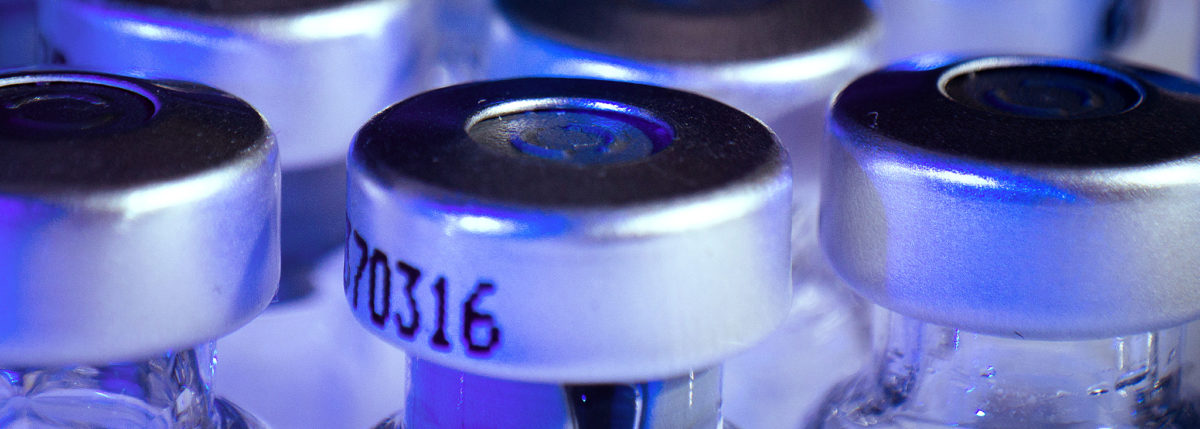FDA Commissioner Makes Statement on Insulin Pricing
Editor’s Update: On April 2, FDA Commissioner Scott Gottlieb, M.D. released a statement further expanding on previous efforts to increase competition within the insulin market. He announced a public hearing to take place May 13 during which access to insulin will be discussed.
Today, the United States FDA Commissioner Scott Gottlieb, M.D., released a statement detailing a handful of new guidances designed to increase competition and bring down prices across the insulin market. The changes are slated to take effect in 2020.
Lack of competition is partially due to the way insulins are currently regulated by the FDA in the United States. Insulin is part of a drug class called “biologics”—therapeutics made up of complex molecules produced by living cells. Biologics currently do not qualify for the abbreviated pathway that allows generic and biosimilar versions to come to market quickly. The FDA is laying out plans to change that.
Gottleib’s statement also takes aim at the practice of drug manufacturers that “game the exclusivity provisions to forestall biosimilar entry”. Indeed, drugs that transition to the new biologics regulation pathway will not be granted the 12 years of exclusivity that the law grants to a newly licensed biologic. The idea being that once patents have lapsed, a competitive biosimilar market for insulin could actually become a reality.
“This is a watershed moment for insulin products, which millions of Americans take each day to maintain stable blood glucose,” Gottlieb said in his statement.
The lack of a competitive biosimilar market has contributed to high insulin prices in the United States. Biosimilars are insulins designed to work similarly to an insulin product that already exists and has previously been licensed. This allows for lower costs of research and development, streamlined governmental and regulatory approvals and ideally lower costs for the product.
The FDA approved the first biosimilar in 2015—Basaglar. Since then, only one additional biosimilar has successfully entered the market (Admelog, manufactured by Sanofi). In addition to the existing FDA policies, litigation has severely slowed both the development and release of biosimilars in the United States and prevented diversification in the insulin market.
For comparison, consider that biosimilar insulins have been available in India (Glaritus, Glarvia, Basalog, Wosulin, Insugen, Biosulin), China (Basalin, Comonlin, Prandilin), Mexico (Bonglixan), Europe (Abasaglar) and other parts of Asia for more than a decade. “The first generic competitor to market offers only a small discount to the branded product. But once three or more generic competitors enter the market, discounts can rise to 80 percent or more of the branded price,” Gottlieb cited.
“The new pathway we’re laying out today should help usher in a new era of competition for these products that’ll lead to lower prices and better access,” Gottlieb stated.
For the many patient advocates calling for access to insulin and pricing reform, a “new era of competition” may not go far enough. In November, the Congressional Diabetes Caucus released a set of policy recommendations to address pricing with regulation at every step of the supply chain.
Although the FDA’s formal policy changes won’t go far enough for some, Gottlieb does acknowledge the severity of the insulin affordability crisis: “Access to affordable insulin is literally a matter of life and death for these Americans.”
The FDA even called out Sir Frederick Banting by name, and referenced his team’s selling the patent for insulin for one dollar.
Gottlieb’s statement also put pressure on the many players in the insulin pricing machine driving prices upwards—“drug manufacturers use rebates generated by the gap between their rising list and net prices to pay for preferred status on pharmacy benefits managers (PBM) formularies. Monopoly profits benefit every member of the drug supply chain, except the patients who most need access to affordable products.”
The FDA’s regulatory changes to the insulin biosimilar pathway are slated to go into effect in 2020. Read more on insulin pricing in the United States here.





